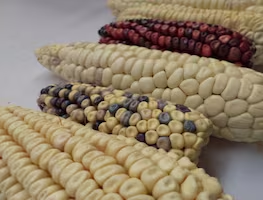Más Información

San Lázaro recibe reforma de Sheinbaum para prohibir maíz transgénico; busca conservar equilibrio ecológico y cultural

Seguridad federal atiende caso de dos niños asesinados en Sinaloa, tras irrupción en Palacio estatal; acompañan a familia

Noroña informará a Sheinbaum del despido de mil trabajadores en Oaxaca; Gobierno acusa que plazas fueron ilegales

Artículo 19 teme por la integridad de periodistas en EU; Trump amenazó con represalias por coberturas negativas
On Monday, scientists involved in the preservation of the vaquita announced the sighting of six specimens of this species on the verge of extinction during an expedition in the Gulf of California , northwestern Mexico.
The expedition, that took place from August 19th to September 3rd , gives new hope for the future of the smallest porpoise of the world, of which there could be less than 30 specimens left, according to researchers.
“This research is extremely important to show the world that vaquitas are still alive and strong ,” said Eva Hidalgo, coordinator of the scientific department of the organization Sea Shepherd, in a press release .
The announcement took place in moments in which the Mexican government seems to have demoted protection for vaquitas , considered the most endangered marine mammal in the world.
Although since 2015 the Mexican government increased its efforts to protect the species , with former President Enrique Peña Nieto personally leading preservation initiatives, the new administration of Andrés Manuel López Obrador , that started in December, is focused on fighting poverty and corruption and has left preservation matters almost out of his agenda.
“Seeing vaquitas alive is a relief and shows that we must continue protecting the species,” said doctor Lorenzo Rojas-Bracho , chief of the Research Program of the Mexican Vaquita , in the document.
The expedition was a joint work between several agencies, including the National Commission of Protected Natural Areas , the Navy Ministry , and the Museum of Whales and Sea Sciences .
The vaquita, an endemic species of the Gulf of California, suffers from increasing totoaba poaching , another endangered species, whose swim bladder is a coveted delicacy in China, where they pay up to USD $100,000 per piece.
Vaquitas are trapped in nets set to trap totoaba and drown .
“Our teams have been working tirelessly, day and night, to eliminate the threat of drift nets in the way of vaquitas,” said Hidalgo.
The World Heritage Committee recently urged Mexico to “strengthen its monitoring activities to prevent the imminent extinction of vaquitas,” and to guarantee that the area where the last specimens live be completely exempt from drift nets.
mp









